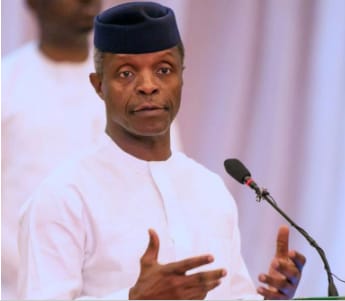Vice President of Nigeria, Yemi Osinbajo has asked the Central Bank of Nigeria to make the exchange rate reflective of the market as it is artificially low.
In his speech at the midterm retreat of President Muhammadu Buhari’s second tenure, the vice-president said the artificial low exchange rate is deterring investors from bringing foreign exchange into the country.
Osinbajo said:
“As for the exchange rate, I think we need to move our rates to [be] as reflective of the market as possible. This, in my own respective view, is the only way to improve supply.
“We can’t get new dollars into the system, where the exchange rate is artificially low. And everyone knows by how much our reserves can grow. I’m convinced that the demand management strategy currently being adopted by the CBN needs a rethink, and that is just my view.”
While the dollar exchanges for N411 in official market, it exchanges for N565 at parallel markets.
The Vice President who stated that there must be synergy between the fiscal and the monetary authority, noted that it appears that there is competition especially on the fiscal side.
Osinbajo said;
“There must be synergy between the fiscal and the monetary authority. We must be able to deal with the synergy, we must handle the synergy between the monetary authority, the CBN, and the fiscal side.
“Sometimes, it appears that there is competition, especially on the fiscal side. If you look at some of the interventions, you will find that those interventions are interventions that should be managed by ministries.
“The ministry of industry, trade and investment should handle MSMEs interventions, and we should know what the CBN is doing. In other words, if the CBN is intervening in the MSME sector, it should be with the full cooperation and consent of the ministry of industry.
“Sometimes you will get people who are benefiting more than once because we simply have no line of sight on what is going on, on one side.”
The Vice President also said that the Buhari-led administration deserves credit for steering the country through the economic challenge of 2020.











